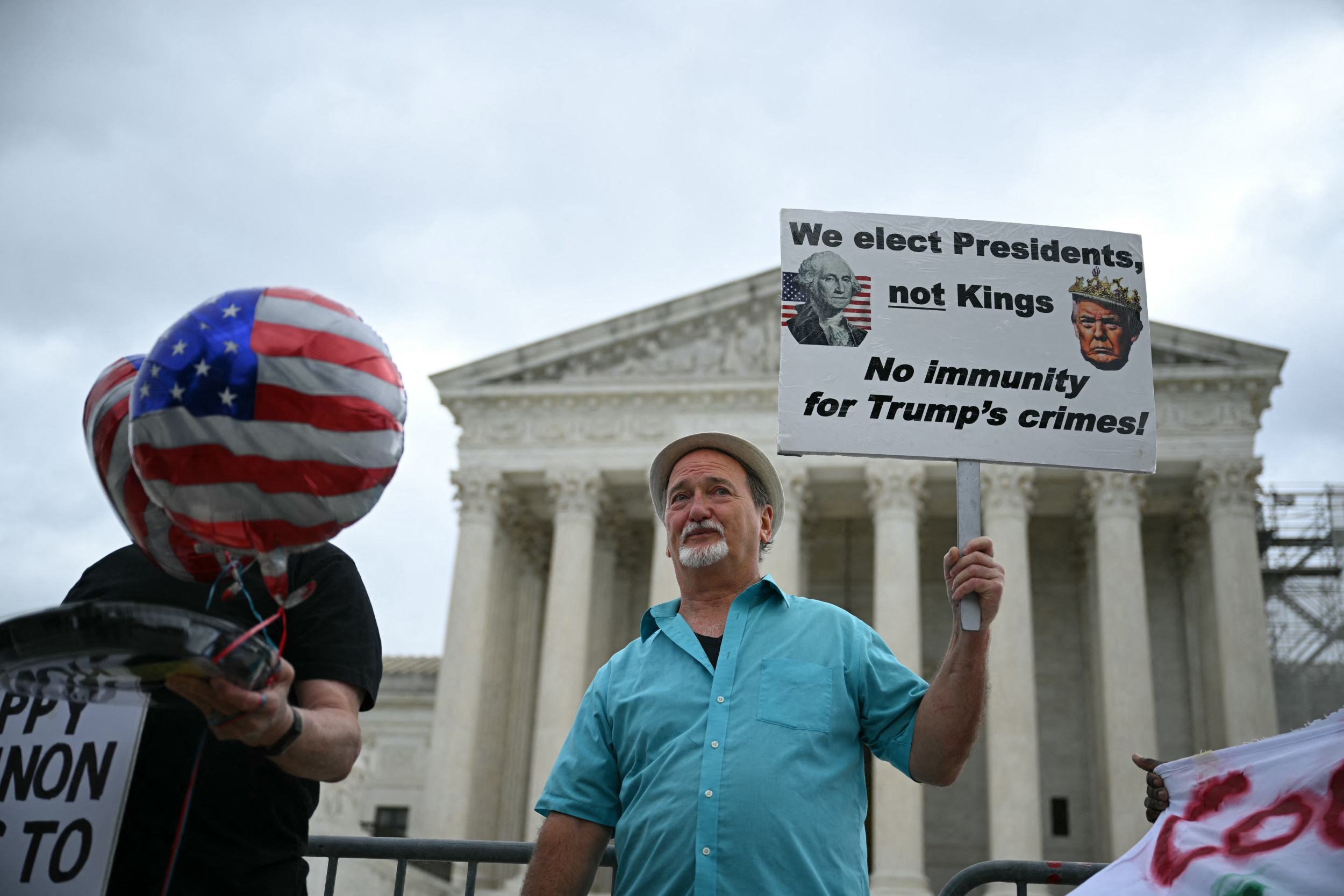Several decisions made by the U.S. Supreme Court in 2024 have sparked significant controversy and disapproval among the general public, making them some of the most unpopular rulings in recent memory.
These rulings have triggered widespread debates and protests across the nation, highlighting the deep divides on crucial issues. A recent aggregation of polls conducted by YouGov has shed light on which SCOTUS decisions are viewed as the least popular in 2024.

Trump v. United States
The Supreme Court’s ruling on July 1 in Trump v. United States defined the extent of a president’s immunity from criminal prosecution.
In a 6-3 vote split along ideological lines, the court concluded that a president is entirely immune for official acts falling within their constitutional duties, such as issuing pardons or enforcing laws. However, this immunity does not cover actions outside these responsibilities.
Only 20 percent of respondents in the YouGov poll supported legal immunity for presidents, while nearly two-thirds opposed it.
City of Grant Pass v. Johnson
In a 6-3 ruling, the court determined that local ordinances prohibiting camping on public property do not constitute “cruel and unusual punishment” under the Eighth Amendment.
This decision overturned previous judgments that deemed such ordinances unconstitutional when adequate shelter options were unavailable. While cities cannot ban homeless individuals from living on the streets solely due to their status, they can enforce regulations governing public spaces, including prohibiting camping, as long as these rules are applied fairly and not used to unfairly target the homeless.
The majority of Americans believe that banning homeless people from camping outside violates the constitution, while 42 percent disagreed.
Department of State v. Muñoz
In Department of State v. Muñoz, the Supreme Court ruled that U.S. citizens do not have a fundamental right to have their non-citizen spouses admitted to the country.
When asked, 61 percent of respondents felt that an unauthorized immigrant, married to a U.S. citizen for over a decade, should be allowed to apply for legal residency without leaving the country.
Seventeen percent believed that the individual should leave before applying, and nine percent favored permanent deportation.
Alexander v. South Carolina State Conference of the NAACP
In the case of Alexander v. South Carolina State Conference of the NAACP, the court overturned a lower court’s decision that South Carolina’s congressional map was an unconstitutional racial gerrymander in a 6-3 vote.
Over two-thirds of Americans considered these changes to be unconstitutional, while the remainder believed they were constitutional.
